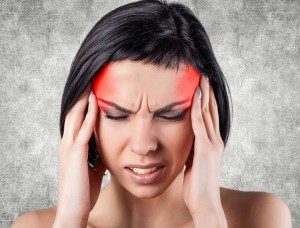 If you’ve ever had a migraine, you know that they are more complicated, and more debilitating, than a simple headache.
If you’ve ever had a migraine, you know that they are more complicated, and more debilitating, than a simple headache.
Many migraine sufferers are able to manage their migraines simply by being aware of and managing their triggers. Some triggers, such as dietary triggers, can be avoided, while others, such as weather changes and hormonal fluctuations, are not, and sometimes triggers don’t cause a migraine unless they occur together.
Triggers vary among migraine sufferers, and what triggers a migraine for one person may not affect another. Some common triggers include:
Weather changes - Changes in barometric pressure can trigger migraines in many sufferers. This trigger is mostly unavoidable, but some preventive migraine treatments can help reduce sensitivity, and watching the forecast closely can help you be prepared.
Hormonal fluctuations - Menstrual cycles, pregnancy, and menopause can be strong triggers for many women who suffer from migraines. Some women get relief from hormone supplements or hormonal contraceptives, while other women find these things make their migraines worse.
Thyroid problems – Reproductive hormones aren’t the only hormonal migraine triggers. Imbalance in thyroid hormones can also be a trigger.
Certain foods and beverages – Dietary triggers can be some of the easiest to avoid, but require constant vigilance. Some of the most common dietary triggers include: foods containing tyramine, monosodium glutamate, and nitrates, alcohol, and fermented foods, among others. If you suspect your migraines might have a dietary trigger but can’t seem to pinpoint the culprit, you might try an elimination diet for a couple of weeks, after which foods are reintroduced gradually.
Skipping meals – For some migraine sufferers, going too long without eating can be a trigger. Scheduling and planning meals and snacks can help. Also, be sure to drink plenty of clear nonalcoholic fluids, as dehydration can also be a trigger.
Flickering or bright lights - Fluorescent lights, strobe lights, older computer monitors, and even sunlight flickering through trees are all potential triggers. When outdoors, wear sunglasses and a cap or visor. If the problem is workplace lighting, talk to your employer, they may be required to make reasonable accommodations, such as adjusting lighting or a new computer monitor.
Sleep disturbances – Sleeping too much or too little, as well as having your sleep interrupted or not getting good quality sleep can all trigger migraines. A good indicator that sleep issues are triggering your migraine is if you have one when you wake up.
Smells – Just about any smell can be a migraine trigger, but perfumes and chemicals are the most common olfactory culprits. It can be difficult to avoid these, especially at work or other places where people might have had a heavy hand with perfume or cologne.
Physical exertion – Exercise, physical labor, and even orgasm can all be migraine triggers. If you experience a migraine after physical exertion, you should seek medical attention to rule out an aneurysm or other serious underlying condition.
Temperature extremes or fluctuations – Being too hot, too cold, or going rapidly from one extreme to another can all trigger migraines.
Stress – There is some disagreement as to whether stress can actually trigger a migraine, but many sufferers will tell you reducing their stress levels helps to reduce their migraines.
A good way to identify triggers is with a very detailed migraine diary. Be sure to record as many details about your headache as possible, including symptoms, diet, sleep, weather, stress, and anything else you can think of.
Many migraine sufferers are able to achieve significant relief, even when exposed to unavoidable triggers, with the help of chiropractic care. For more information on migraines, migraine triggers, and how chiropractic care can help, call Eastland Chiropractic now on 03 9095 7990 to find out how we can help.
Published by